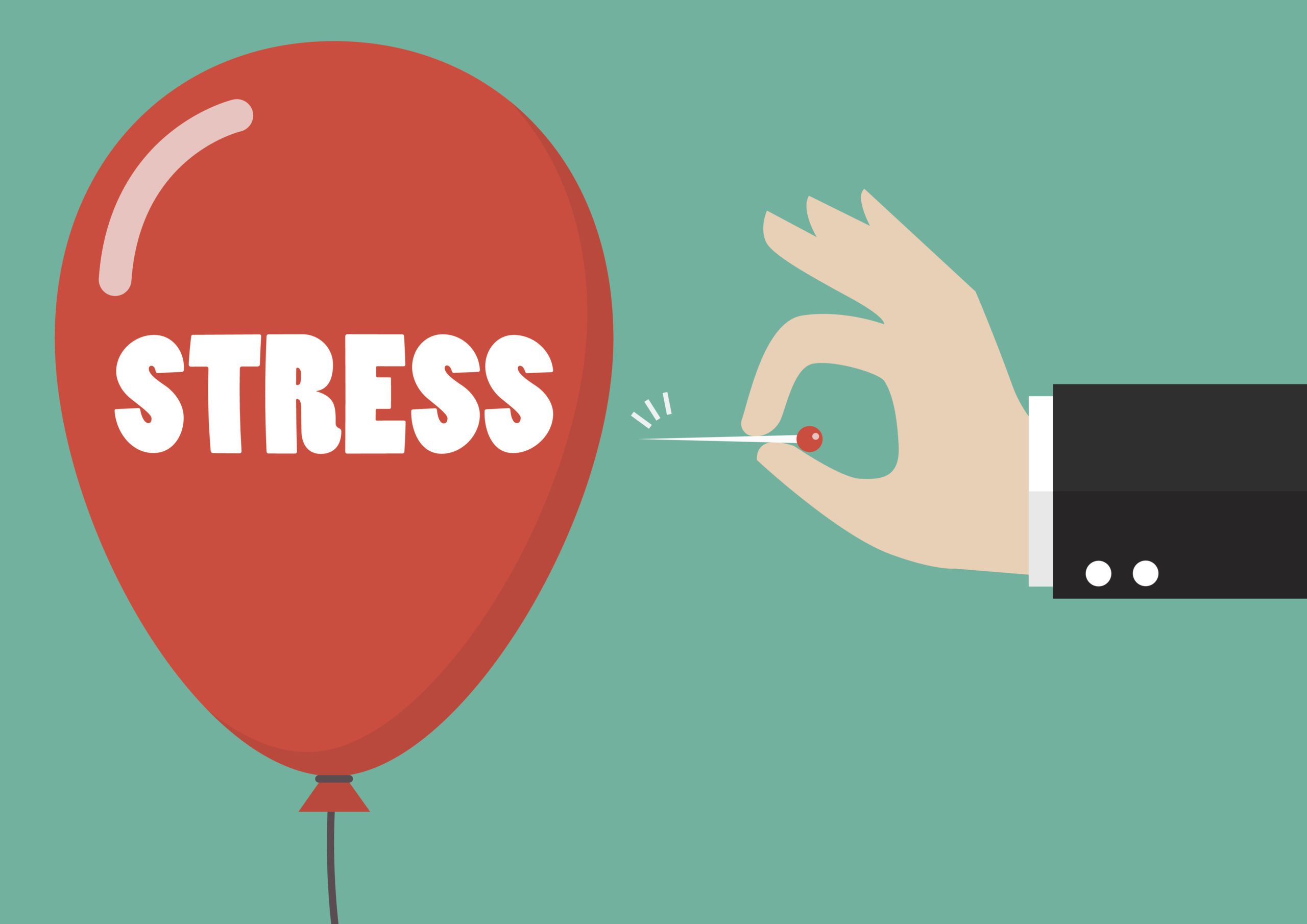Don’t get it confused though: not all stress is bad. ‘Eustress’ is the term of-ten used to describe the good kind of stress and this is the kind of feeling you get when standing on top of a mountain about to head down on skies, or when you’re playing a computer game and you’re completely focused because you only have one life left. This is the kind of mild stress that in-creases dopamine and BDNF.
The key is to keep challenging yourself, keep subjecting yourself to new experiences and to make sure you manage the stress this brings in a healthy manner. The worst thing you can do is to sit in an old-person’s home stressing about how lonely you are, or to sit in the same office, doing the same work, every single day while being under a lot of stress.
The reality is that while we can’t control our circumstances, we can control the way we react to them. When you’re lonely or bored, there are things you can do to get more meaning in your life again – even if that just means getting the internet set up or learning a new skill like painting. And if you’re stressed at work, consider quitting – after all, your health is the most important thing.
Stress Management Techniques
You can also try any number of stress management techniques. Of these, the most successful and popular is probably meditation. It’s no coincidence that a lot of Buddhist monks seem to live inordinately long. To give meditation a shot, you could try downloading the popular mobile app ‘Head Space’ which will talk you through a few guided meditation sessions.
Otherwise, you can try transcendental or mindfulness meditation on your own. The key is to calm the mind and to stop worrying about things.The big mistake we often make is to try and ‘force’ this to happen when in reality, this defies the point entirely! When you try and ‘force’ yourself to calm, you are actually anything but. Instead, you should simply sit somewhere quietly, close your eyes and then see what happens.
If your mind wanders, then just make a note of it and focus back on your breathing or on keeping your mind still. It takes a little practice but just 10 minutes a few times a week can start to make a major difference. Eventually, meditation will become a tool you can use to stay calm under any circumstances. Another option is to look into CBT or ‘Cognitive Behavioral Therapy’.
This is a psychotherapeutic technique that teaches methods that patients can use to try and clam their thoughts and overcome a stress response. Often, it simply involves looking at your situation a little differently. For instance, ‘thought challenging’ is a type of ‘cognitive restructuring’ and this teaches you to look at the things you’re afraid of and then assess whether they’re really worth fearing or if perhaps you have blown them out of proportion.
If you are someone who struggles with a lot of stress, then you might consider seeing a professional cognitive behavioral therapist who will teach you these tools that you can then use yourself to overcome stressful situations. Most important of all though is simply to remember that you need to make the best of your situation and that means putting yourself out there, experiencing new things and crucially connecting with new people.
Tips for a Healthy Life and Releaving Stress for the Entrepreneur
Sometimes we think running a business is an easy task and includes lot of fun too. But this is not a complete fact. Getting into business, along with fun and rewards is also stressful. There are lots of pressures and work loads included when running a business. For lots entrepreneurs there is lot of work load which is one of the factors for stress. Many believe that working hard and working extra time is beneficial for your business. Entrepreneur’s life starts with hard working and long working hours and ends the same. The pressure is more when you own a company rather working in some company.
Stress builds up more and more when there is lot of work pressure other sort of works. When there are many tasks to be completed or to be done and at same time there are responsibilities towards home, the stress level increases. There are some Entrepreneurs women who have work at office, while they have to give contribution of themselves at home. Further job is to take care and complete her responsibilities towards their kids.
Mostly in many Entrepreneurs financial feature of business is very stressful. Many of them have some loans to repay from where they have lent, which causes lot of stress and restlessness. Entrepreneurs one of the main goal is balancing his money and funds, he should be able to get more income rather than expenses. When a person cannot maintain balance, usually it adds lot of stress in entrepreneur life.
Entrepreneurs are tend to take decision accurately and rapidly. For the beginner this kind of environment is not an easy task, it can result in lot of pressure and stress. There are many other reasons which contribute stress towards entrepreneur. He should have perfect balance in his personal and professional life. To deduct stress and maintain equilibrium he should follow some easy steps or tips.
You should clean your desk before you start your work. Keep away all those things which cause disorder on your desk. A clean desk would contribute a pleasant working atmosphere.
Entrepreneurs should keep daily planners which would help them doing things in better way and avoid the stress. With these daily planners you would be able to finish the work at time and do not have pressure build up on last minute. You should contribute your time towards each work and this would help you in solving your problem. Doing one work at time would help you in completing and doing work nicely.
In order to avoid your stress, you should hire a person as a helper hand to you. It is better to get the right person for your assistance rather than delaying or not being able to do work. You should assign right work to right person in order to avoid stress. Every day you are tend to do many things. For getting things coordinated you should make plan and work according to it. You should use ideally your time, as time is money in business terms. You would learn the business as days progress with experience.
Six Tips to Ensure Safe and Stress-Free Air Travel with Pets
It’s your first time to bring Fluffy with you on your holiday vacation. Exciting, isn’t it? However, traveling by air can be a real disaster for both you and your pet if you fail to do the necessary preparations. Are you and your pet ready for the journey? The following tips can help you make your travel with pets a safe, hassle-free, and comfortable one.
Know the Pet Policies
Airlines that allow their passengers to bring their pets along with them in the flight impose certain policies. That being said, you should familiarize yourself with the pet policies of your chosen airline to prevent stress to your pet and inconvenience on your part. Some airlines may allow taking small dogs and cats in the cabin, while others require pets to be placed below the cabin for the rest of the flight. Understand the restrictions of the airline regarding pets to avoid any hassle. Aside from these, you also have to be aware of the rules on pet carriers and any health and immunization requirements that are set by the airline.
Visit the Vet
Have your pet checked before your flight. Ask your vet if your pet is suitable for airline travel. Also, see to it that your pet has received all the needed vaccinations to comply with the rules on pet immunization of the airline. Ask the vet to give you a health certificate for your pet; you will need this piece of document at various points in your entire travel. Make sure that it is dated within at least 10 days of your departure.
Choose Your Flight Wisely
If possible, opt for direct flights because changing planes will cause stress to your pet. To reduce the stress your pet has to endure throughout your trip, you should try taking a non-peak flight where there are fewer passengers and more cabin room. Also, avoid busy travel period such as during summer and holidays, as more passengers mean more stress for your pet.
Invest in a Pet Carrier
It would be rather unwise to tug along your furry friend without a carrier to keep the pet secure. So if you don’t have one yet, buy a carrier that’s appropriate for the size of your pet. Make sure that it will be comfortable, too. It should allow let your canine or feline companion to stand up, sit, lie down, and move around comfortably. Allow your pet to get used to the travel carrier for at least four weeks before your flight. This will lessen the stress during your flight.
Avoid Feeding Your Pet Before Your Trip
Chances are, feeding your pet within four to six hours prior to your flight will cause undue discomfort and stress. But you can give small amounts of water before your flight.
Bring a Photo of Your Pet
Travel with pets can become a horrible experience when the pet gets separated from its owner. Your pet’s photo will come in handy in such cases. You will easily find your missing pet by showing the photo to the airline personnel.
Stress and Tension About Sleeping
Stress and tension are common types of medical conditions that can make the daily living of a person miserable and sad. These medical conditions can be treated. But it takes a lot of time to remove all its negative effects in the daily living of a person who doesn’t know how to achieve a good quality of sleep as the time passes by.
One of the most effective treatments that people can use to fight and eliminate the negative effects of stress and tension in their daily living is to rely on all benefits that excellent bedtime routine can offer. Relaxing bedtime routine is something that can help a person to relax and stay free from the negative effects of tiredness while preparing to sleep.
Aside from that, good quality of sleep can provide a person with a better way of living since it plays an important role in balancing the most important growth hormones in a human body. It will never fail the expectations of those individuals who want to grow healthier and strong as the time passes by regardless of the presence of tough tasks and responsibilities that are meant to be completed in their daily living.
<strong>Better Sleeps works better than Synthetic Medicine</strong>
Stress and tension will never be able to survive in the amazing healing benefits that good quality of sleep can provide in a human body. Remember, it helps a human body to be rejuvenated naturally every morning. It can also preserve the excellent status of the mental health of a person as the time passes by.
But a person doesn’t need to sleep for more than eight hours every night while aiming to fight the negative effects of stress and tension more efficiently. This is because too much sleep can make all negative effects of stress and tension in a human body worst and more difficult to treat. Excessive sleep is not good for those people who want to be protected from the negative effect of chronic diseases as well.
Many people in this world believe that synthetic medicine is the only thing that can help a patient to fight the negative effects of stress and tension more effectively. But such belief is a big mistake. This is because synthetic medicines are not really safe and effective to use in the process of treating a patient who suffers from stress and tension.
Such type of medicines have harmful side effects that can make all things more dangerous when it comes to the process of eliminating the negative effects of medical conditions that were stated in the body of a patient.
Having good sleeping habits is one of the most effective ways on how to fight stress and tension naturally.
Those people who don’t know how to improve their sleeping habits will never be able to protect themselves from the different kinds of sleep disorders that stress and tension might create in their health status. Remember, stressful moments and tension are included in the list of medical conditions that can also affect the ability of an individual to fall asleep faster during evening hours.
Discover more from Personal Blog of Richard Tong
Subscribe to get the latest posts sent to your email.




